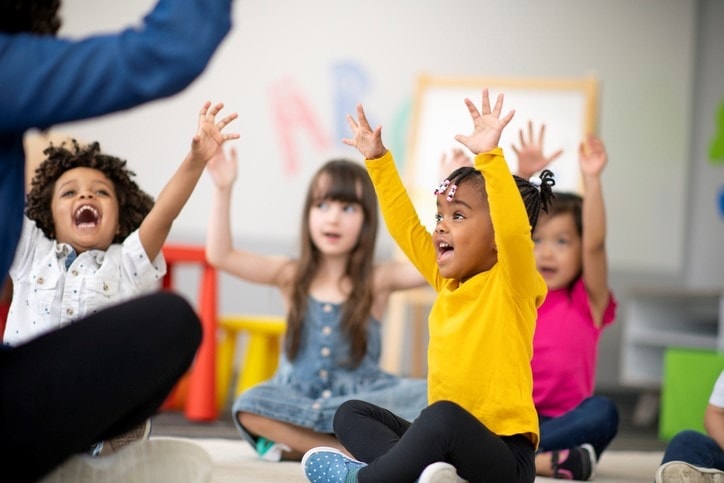NAfME BLOG
Changes: A Message from Journal of General Music Education Academic Editor Rekha S. Rajan

/ News Posts / Changes: A Message from Journal of General Music Education Academic Editor Rekha S. Rajan
Changes
By NAfME Member Rekha S. Rajan, Academic Editor, Journal of General Music Education
This article first appeared in the January 2022 issue of Journal of General Music Education.
It would be an understatement to say that the year 2021 was one of the most challenging years of our lives . . .
and a year of change.
We were still trying to understand and navigate a pandemic, struggling with our emotional, physical, and mental health, balancing work and family life. It was certainly a year of pain and caution, surprise, and fear, but what emerged was also change.
Changes in how we interacted with one another, social distancing, and zoom meetings. Changes in how we communicated with our family and friends and students. Changes in how we prepared our music lessons, how we cleaned and sanitized instruments.
Changes in how we viewed our profession and our work as music educators.
I know many, many, many teachers who reached out to me because the pandemic forced schools to cut their music programs, limited an already restricted budget for supplies and instruments, and made music educators across the country reflect on not only our profession, but force a change of how we would continue to bring music into our students’ lives.
What I learned from conversations with my colleagues, friends, and family is that we didn’t give up. We kept pushing forward, finding new opportunities to make music in virtual environments, while waiting for that transition to in-person learning where we could see each other again.
Is there a new normal for music education in the year 2022? Is there a new way to define what music education looks like now? I honestly don’t know. However, what I recognized among our community of music educators was that we are resilient. Modifying an English or math lesson into a zoom meeting is very different than changing a group music making session, a private piano lesson, or a choir rehearsal into a meaningful musical experience.
Yet, we did it.
I spent the past year reflecting on what general music education means and trying to find ways to expand the reach and impact of our journal. Yes, we are a practitioner-focused publication, but that should never be seen as less than research-oriented journals.
General music educators should never be made to feel or be seen as less than others in our field.
I saw similar patterns of perception during my work in higher education as the director of graduate programs in early childhood teacher education. Preschool teachers were always made to feel as “less” than someone teaching fifth grade.
We need to change how we support and uplift each other in our profession. We are already rooted in a challenging position in the school curriculum. We all know we need music education. It’s like I was taught in grad school: You take practice and turn it into research, and research into practice. I hope our journals and future journal editors can find ways to bring positive change to our field and collaborate together.
It was with that purpose that we (my colleagues on the editorial committee and columnists) moved for change in our field. It was a collective goal to change the perception of what we do as general music educators, and to change a journal that was rooted in a mission and scope of general music that is very different today than when the journal was first published thirty years ago.
I invite all of you reading to reflect on the changes you made in your own teaching practices, settings, and studios.
- What were the strategies that worked?
- What will you continue to use moving forward, even when you are teaching fully face to face? Do you still include opportunities for asynchronous and synchronous learning?
- How many parents and families still prefer one way of learning or the other?
These changes weren’t options two years ago, but they are now. And I’ve honestly never been one to lean towards change. I’ve always preferred to keep things the way they were, but I have learned that while there are changes, some things will stay the same.
And change is good when it can be used to elevate and uplift our profession, support our teachers, and build a future for music education.
I wish you all a wonderful, safe, healthy new year.
Rekha S. Rajan
Academic Editor
Journal of General Music Education
About the author:
 Dr. Rekha Rajan, Academic Editor of the Journal of General Music Education and Visiting Associate Professor of Research at Concordia University Chicago, is the program leader for the master of arts in grant writing, management and evaluation (GME) program. She currently teaches Introduction to Grants; Grant Management, Budgeting, Grant Writing and Third-source Funding; Theories and Models of Evaluation; Principles and Methods of Evaluation; and the capstone course for the program. Learn more about Dr. Rajan.
Dr. Rekha Rajan, Academic Editor of the Journal of General Music Education and Visiting Associate Professor of Research at Concordia University Chicago, is the program leader for the master of arts in grant writing, management and evaluation (GME) program. She currently teaches Introduction to Grants; Grant Management, Budgeting, Grant Writing and Third-source Funding; Theories and Models of Evaluation; Principles and Methods of Evaluation; and the capstone course for the program. Learn more about Dr. Rajan.
Did this blog spur new ideas for your music program? Share them on Amplify! Interested in reprinting this article? Please review the reprint guidelines.
The National Association for Music Education (NAfME) provides a number of forums for the sharing of information and opinion, including blogs and postings on our website, articles and columns in our magazines and journals, and postings to our Amplify member portal. Unless specifically noted, the views expressed in these media do not necessarily represent the policy or views of the Association, its officers, or its employees.
February 15, 2022. © National Association for Music Education (NAfME.org)
Published Date
February 15, 2022
Category
- NAfME News
- Research in Music Education
Copyright
February 15, 2022. © National Association for Music Education (NAfME.org)





